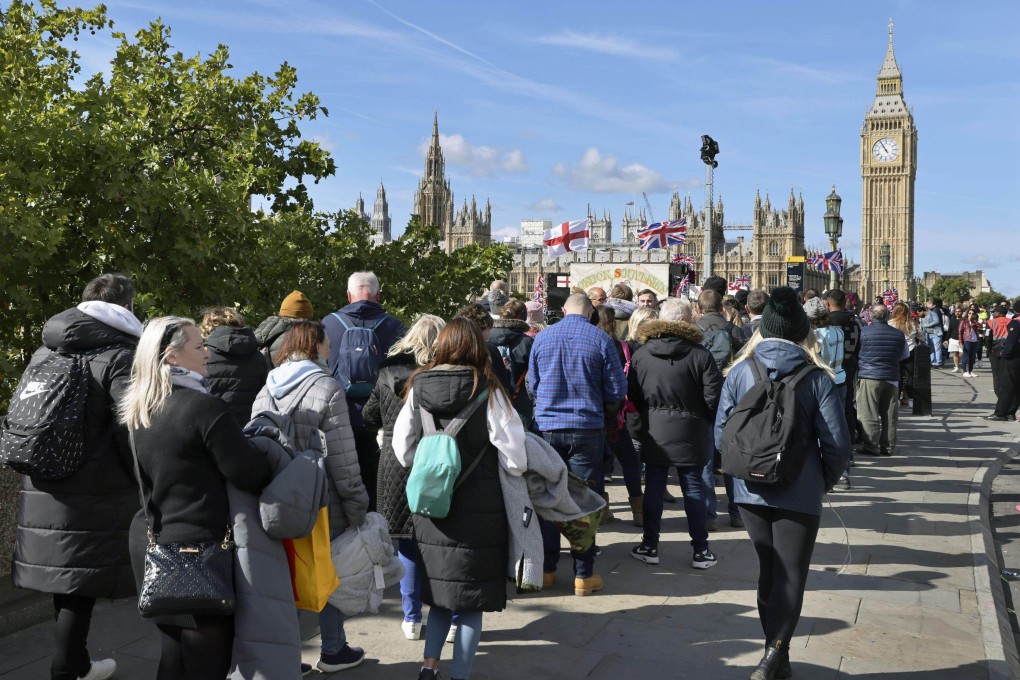Outside In | To queue is to be human. Just ask those lining up to see Queen Elizabeth’s coffin
- The sight of hundreds of thousands of people waiting patiently to pay their respects was a reminder of some universal truths
- Not only is queuing a shared human experience, it is also an indispensable way of managing the snarls of our lives and keeping chaos at bay

It was a reminder of Britain’s formidable reputation for forming queues. It was perhaps also a reminder of a deeper truth: to queue is to be human, and it is an indispensable way of managing the chokepoints and snarls that litter our lives.
We all have horror stories about queues – whether it is watching business class passengers glide through airport check-in while we wait in the economy line, enduring a five-hour wait in a hospital accident and emergency ward or collecting ticket number 350 in our bank branch queue when the screen on the wall says the tellers are dealing with number 65.
My most recent peeve was at my local Tseung Kwan O Hospital, booking an appointment to see an ear specialist. There was no queue, and the woman behind the reservations counter found me a slot with the doctor – in May 2024.
